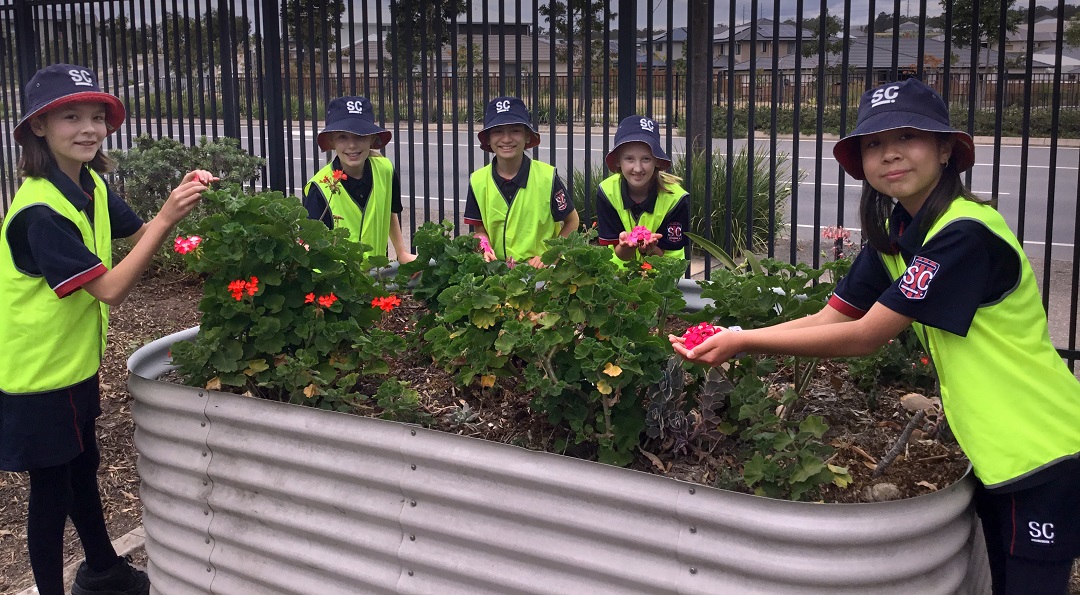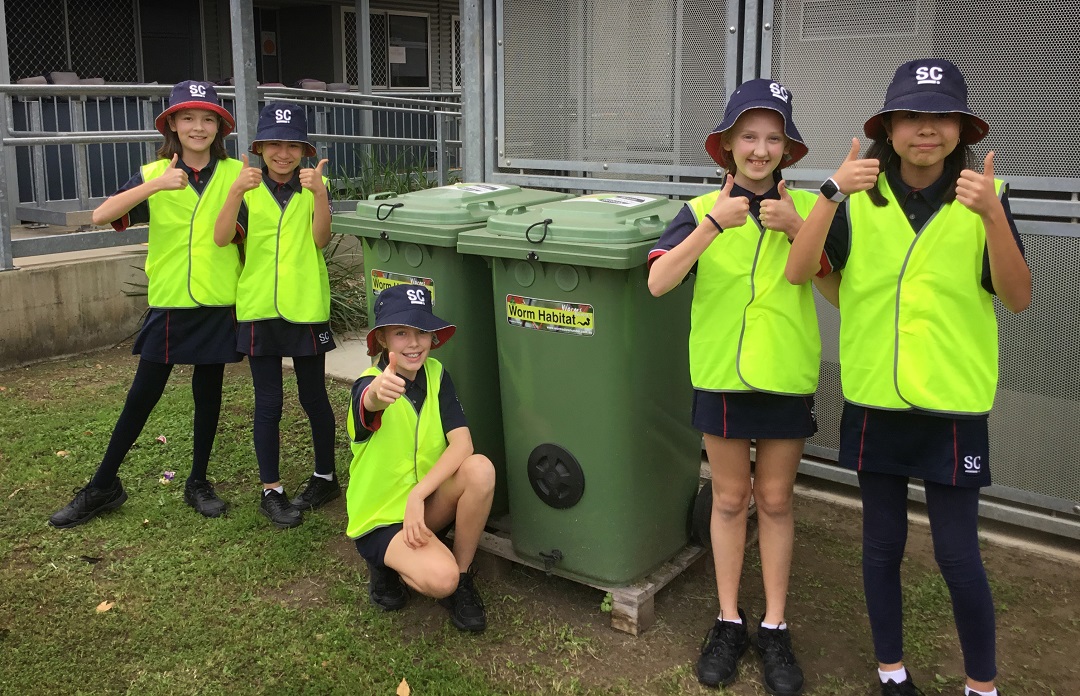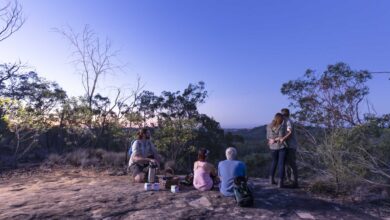The year five students at Springfield Central state school may take small steps but they are making huge strides in caring for their environment.
A group of dedicated students get together as a team and think about how they can find ways at school and home to be good to their environment and encourage their class mates to do the same.
The Sustainability Squad formed after the students were inspired by an excursion to the Youth Sustainability Summit held as part of Ipswich City Council’s Sustainable Ipswich Week last year.
Year five student, Arezo, said being in the squad was important to her because she loved saving the planet and animals.
“When I grow up I want to try be sustainable and not use plastic and influence other people to try to not use plastic for a day,” Arezo said.

Sustainablilty Squad members Mariah, Annabelle, Narges, Lauren and Arezo tend to one of their gardens.
The students have implemented a nude food day once a term at the school where the focus is to pack lunchboxes in a way that gets rid of packaging that needs to go in the bin.
In the past year the students have also created and maintain two worm farms, a native bee hive and implemented a cardboard and paper recycling scheme.
Year five student, Anabelle, said she likes to find new and exciting ways to help the environment.
“My favourite responsibility on the squad is to remind the school about being sustainable,” she said.
The squad speaks regularly on assembly sharing tips on sustainability with the rest of the school.
Springfield Central State School teacher Helen Desic said the children are really engaged and involved and want to be part of the solution.
Ipswich Central State School Sustainability Squad vision statement
The Sustainability Squad will work to raise environmental awareness to enable SCSS students and staff to engage our community to improve sustainable practices.
It starts with our squad but doesn’t end with our school.
“The students are just aware and they have the confidence to have conversations with their parents and siblings,” Ms Desic said.
“Some have started worm farms at home and grow vegetables at home. So they are using what they have learned in their own context.”
>>> What could the future look like if we embraced the best solutions available today
>>> How your addiction to op-shops could be saving the planet
>>> Gardening with James Hilyard: Tips for worm farming and composting



